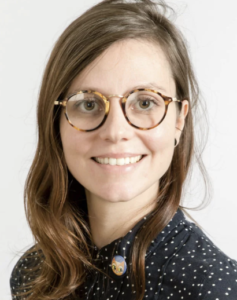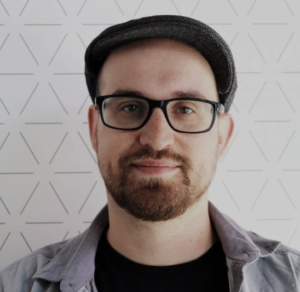On-demand Course
Design Thinking Fundamentals
Learn the fundamental skills and mindsets to apply design thinking in your day-to-day work
Course overview
Do you want to become an innovator in your field? Are you curious about design thinking and human centered design? Would you like to uncover opportunities in your daily work and engage others in the process too? Would you like to learn practical tips and useful strategies to apply creativity to your problem solving approach?
If you answered yes to one or more of these questions, then this course is for you!
The goal of the Design Thinking Fundamentals course is to familiarize you with the mindsets and methods of Design Thinking, as well as the practice to apply these in your daily practice.
We will take you through the entire Design Thinking process using a learning by doing approach. You will work hands-on to combine theory with practice through case studies and hand-on exercises. You’ll be introduced to our Design Method Toolkit and apply various design methods to a relevant case. The methods in our toolkit will help you to collaborate more effectively, using design and design methods as a common language. During the 3 sessions of the course, you will learn to move more quickly from talking and discussing into visualizing and making things tangible, which will ensure a richer, more productive, and more creative workflow.
Format of the course
MODULE 1: DESIGN THINKING & HUMAN-CENTERED DESIGN
You will learn the foundational definitions, methods, and mindsets behind design thinking and human-centered design. You will get hands on exercise into getting into the mindset of design thinking and doing, through online brainstorming, facilitation, and co-creation.MODULE 2: EMPATHIZE, DEFINE, & IDEATE
You will learn the basics of human-centered research and design. You will learn to frame the opportunities to systematically and collaboratively generate and evaluate creative solutions.MODULE 3: PROTOTYPE & TEST
You will develop your ideas into concepts. You will learn the value of prototyping and testing to gather user feedback toward (in)validating your designs and assumptions. You will practice storytelling to pitch your concept.
Learning Outcomes
After successful completion of the course, participants should be able to understand:
- The fundamentals of Design Thinking.
- Be familiar with design thinking processes and methods
- Be able to generate innovative ideas using design thinking
- Know how to engage others collaboratively in the process
- Have the grounding around strategies and practices to help incorporate Design Thinking and acting into your daily practice
Certification
A certificate of completion will be sent to successful participants who finish all modules within the course.
For whom is this course?
- You want to be more innovative and creative in your daily work by applying design thinking,
- would like to generate and act on new ideas and opportunities,
- or would like to engage others to collaboratively solve problems within ambiguous and fast paced contexts.
Questions you may have
Meet the course instructors

Shauna Jin
Shauna Jin is a curious designer, thinker, and doer, working at the intersection of business and academia. She has experience leading and facilitating human-centered innovation processes, especially around technologies such as AI and IoT. Shauna has worked with diverse organizations from startups to traditional corporates to higher education and across various industries including healthcare, technology, and retail. She is Program Manager of the track Digital Twin at Digital Society School.

Mariana Pinheiro
Mariana Pinheiro is an industrial designer, speculative thinker, hands-on maker, and sustainability advocate. Mariana has experience designing for the IoT in the toy, therapy, and healthcare industries, has taught in academia, and has worked with the retail industries to help accelerate the sustainable shift. She has now joined Digital Society School as a Digital Transformation Designer.

Stephan Ackermans
Stephan Ackermans is a product, service and strategy designer with expertise in sustainable design and creative facilitation. He is interested in the environmental and societal impacts of new sharing systems and finding uncommon links between the actors within. Stephan was a Digital Transformation Designer at Digital Society School.



